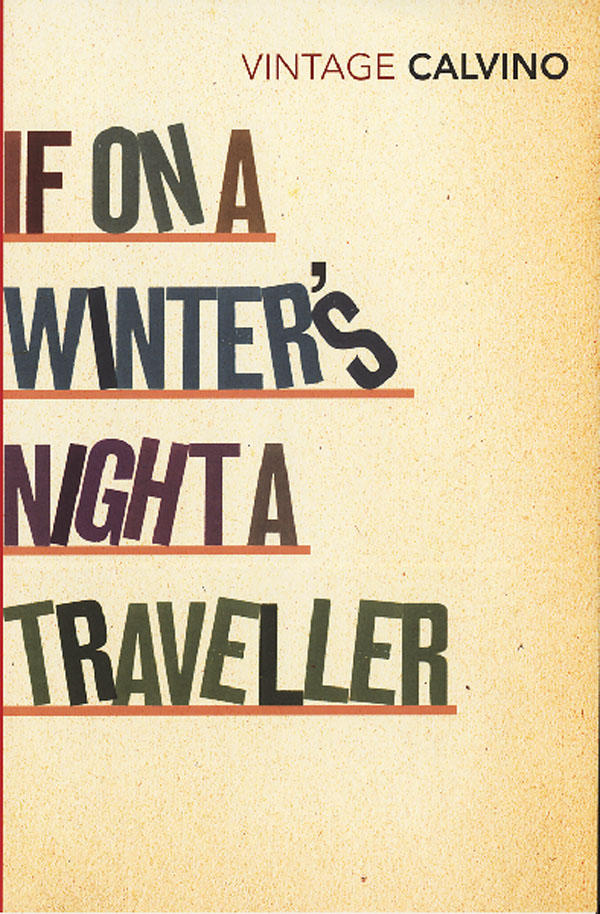Our book group choice for October 2003 is If on a Winter’s Night a Traveller by Italo Calvino. The book is a marvel of ingenuity, an experimental text that looks longingly back to the great age of narration “when time no longer seemed stopped and did not yet seem to have exploded.”
The novel begins with the Reader sitting in a train station, about to start reading a new book. However, the book is defective, and the story breaks off after a few pages. The Reader returns to the bookstore to exchange the book, but the new copy is also defective. This pattern continues, and the Reader finds himself trapped in a world of unfinished stories.
Along the way, the Reader meets a young woman named Ludmilla, who is also trying to find the rest of the book. The two of them become friends, and they work together to solve the mystery of the defective books. They eventually learn that the books have been tampered with by a fraudulent translator named Ermes Marana. Marana has been swapping the titles, contents, and authors of books in order to create a labyrinth of unfinished stories.
The Reader and Ludmilla eventually track down Marana, and they confront him about his actions. Marana explains that he is trying to create a new kind of literature, one that is more open-ended and ambiguous. He believes that by breaking down the traditional conventions of storytelling, he can create a new kind of reading experience that is more challenging and rewarding.
Discussion Questions
- Why do you think Calvino chose to write If on a winter’s night a traveler as a series of first chapters to fictional novels? What point is he trying to make by writing this way?
- How do you feel about Calvino’s use of second-person narration, where the main character is “you” the Reader? Do you find it involves you more in the book, or is it mostly confusing?
- What’s the deal with all of the women being sex objects in all ten of the fake novels, as well as the story of “you,” the Reader? What kind of picture does this book paint of women and their relation to (apparently male) readers?
- Does the book change the way you think about the process of reading? How did you think of reading before encountering this book? How about after?
- Why does Calvino lead you, the Reader, all over the world in search of the various novels you’ve started? What benefit is there to using various cultural styles to write these various first chapters of novels?
- By creating endless confusion between authors and book titles, how does Calvino change our perception of authors as individual, flesh-and-blood creators? What is the book’s overall approach to authors as the “owners” of the novels they write?
- This book constantly speaks of a “void” or “silence” that exists beneath the words of all books. Based on your reading, what can you say about this void? What can anyone say about it? Is it, by definition, something you can’t really talk about?
- According to Calvino, there seems to be a form of “innocent reading” that is taken away from us by higher education. In what way do scholastic English classes ruin the books we study? How does this question play out in the novel?

